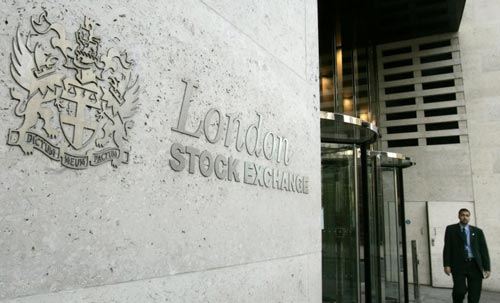In times of turbulence, you can still ride out the falls
Rushing to sell when shares dive can have dire consequences, writes Cherry Reynard. It's far better to take a long-term view and invest little by little

Your support helps us to tell the story
From reproductive rights to climate change to Big Tech, The Independent is on the ground when the story is developing. Whether it's investigating the financials of Elon Musk's pro-Trump PAC or producing our latest documentary, 'The A Word', which shines a light on the American women fighting for reproductive rights, we know how important it is to parse out the facts from the messaging.
At such a critical moment in US history, we need reporters on the ground. Your donation allows us to keep sending journalists to speak to both sides of the story.
The Independent is trusted by Americans across the entire political spectrum. And unlike many other quality news outlets, we choose not to lock Americans out of our reporting and analysis with paywalls. We believe quality journalism should be available to everyone, paid for by those who can afford it.
Your support makes all the difference.Recent events on the stock market have been enough to send most private investors into a spin. Just a fortnight ago, the FTSE 100 index saw its biggest one-day drop since 2001. Two days later came its biggest daily rise since 2003.
Ups and downs such as these can be bewildering, and the temptation is to sell up when the market has fallen. But acting at the wrong time can have devastating effects if it causes investors to crystallise their losses.
According to fund management group Fidelity, £1,000 invested in the UK stock market in January 1993 would now be worth £3,452. But investors who missed the 40 top-performing days in the market during that period would have ended up with just £985. To underline the difficulty of timing the market, many of those top-performing days came immediately after a big drop in share prices, just as happened last month.
Of course, investors may get their timing right. With hindsight, someone investing in the UK stock market on the day that British and American forces invaded Iraq in March 2003 would now be sitting on a 62 per cent gain. But over the previous three years, the market halved (from 6,930 points to 3,597), and making gains during periods such as that are very difficult. Few achieve it, even among the experts.
To ride out the tough times, independent financial advisers recommend drip-feeding money into the markets each month or quarter, rather than going for broke and ploughing in a large lump sum on one specific day.
Gavin Haynes, investment director at independent financial adviser Whitechurch Securities, explains how monthly savings can counteract the effects of market volatility: "If you invest a lump sum and there is a sharp price drop straight afterwards, it can be quite painful. It makes perfect sense to drip-feed [through a regular savings scheme], particularly in riskier areas such as emerging markets."
And there are further advantages to such a strategy. "Saving monthly enables you to figure out how much you need to save to achieve long-term goals," says Peter Hicks, spokesman for Fidelity. "It also gives you discipline and, psychologically, makes it easier to do the right thing. You have the comfort that, if the market falls, next month you'll get more stock for your money."
He adds that making regular deposits can help investors to avoid two of the most common mistakes: selling after a downturn and delaying an investment to wait for the "right time".
There are a number of ways to invest regularly. For a start, friendly societies offer tax-exempt savings products with a low minimum investment. Sheffield Mutual, for example, will accept as little as £5 per month into its with-profits fund, which is part-invested in the stock market.
Investment trusts, which are listed companies that buy and sell shares in other companies, also offer a low-cost route into regular stock market saving. Investment trust group Witan will accept just £25 per quarter. The Association of Investment Companies website (see below) gives details of this and other providers.
Most unit trusts allow individuals to make regular savings from £50 per month. These can be deposited directly with the provider, but investors will get a reduced initial charge and find help in choosing the right investment by going through a discount broker or fund supermarket. Discount brokers include Chelsea Financial Services and Hargreaves Lansdown. Fund supermarkets include Funds-Network and those attached to brokerage houses such as TD Waterhouse.
Join our commenting forum
Join thought-provoking conversations, follow other Independent readers and see their replies
Comments